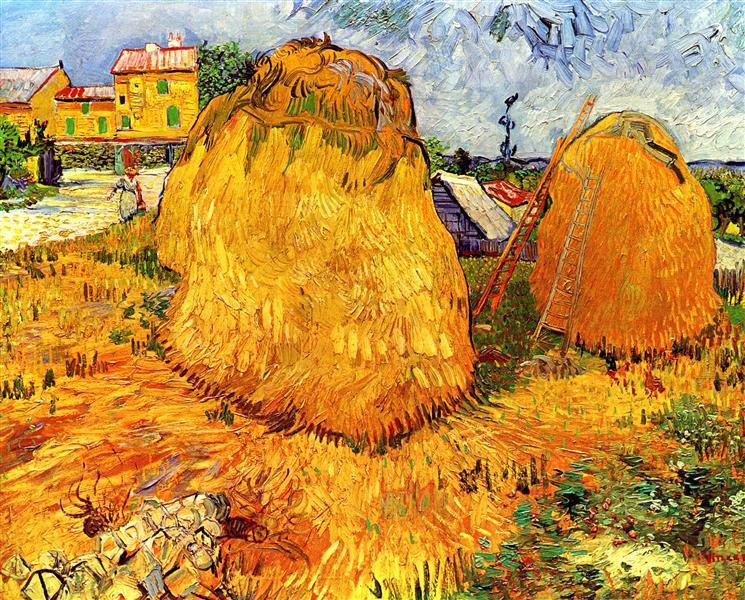Description
Vincent Van Gogh's "Haystacks in Provence" painting is a masterpiece of impressionism depicting the natural beauty of the Provence region of France. This work was created in 1889, during the period when Van Gogh lived in Arles, a small town in the south of France.
Van Gogh's artistic style is characterized by his use of thick, vibrant brushstrokes, which create a sense of movement and energy in the painting. In "Haystacks in Provence", we can see how Van Gogh uses this technique to represent the wheat fields and trees in the background of the image.
The composition of the painting is very interesting, as Van Gogh uses an unusual perspective to show the haystacks in the foreground. Instead of depicting them from the front, he shows them from the side, creating a sense of depth and perspective in the image.
Color is another outstanding aspect of this work. Van Gogh uses a bright, saturated color palette to depict the light and landscape of Provence. The yellow and golden tones of the wheat contrast with the intense blue of the sky and the dark green of the trees.
The history of the painting is also fascinating. Van Gogh created this work during a period of great creativity in his career, but it was also a time of great emotional instability for him. Shortly after painting "Haystacks in Provence", Van Gogh suffered a mental breakdown that led him to cut off his ear.
Also, there is a little-known aspect of this painting that is interesting to mention. In the lower right corner of the image, Van Gogh included a small signature in which he wrote his name and the date the work was created. However, some experts believe that this signature was added later by Van Gogh's brother, Theo, who was his main financial backer and promoter.

